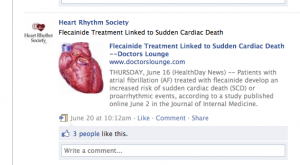September 29th, 2011 by Paul Auerbach, M.D. in Health Tips, Opinion
No Comments »

Perhaps the greatest thrill in attending a summer meeting of the Wilderness Medical Society (WMS) is listening to new, enthusiastic and exciting speakers. They bring new insights and opinions to numerous topics and discussions, which is an essential part of the educational process. This past summer, at the 2010 Annual Meeting of the WMS held in Snowmass, Colorado, Dr. Drew Watters from the Indiana University School of Medicine approached the audience with his observations about neurobiology and survival. It was an innovative approach to a very common topic within wilderness medicine. How does one account for and handle emotions in a time of stress, including the most stressful situation of all—namely, a survival situation? When is it better to think, rather than to react? The objectives of his presentation were to understand to a certain extent survival, the anatomy of thought and perception, the neurobiology of emotions, behavior, emotive and cognitive decisions, and implementation of interventions in situations dominated by emotion.
Anyone who has practiced wilderness medicine knows that bad things happen, sometimes despite the best preparations and intentions. People make bad decisions that can too often be characterized as dumb. If they follow with more bad decisions, the situation Read more »
This post, Handling One’s Emotions In A Survival Situation, was originally published on
Healthine.com by Paul Auerbach, M.D..
September 12th, 2011 by PreparedPatient in Health Policy
No Comments »

How do you calibrate care so that it is neither too much nor too little? In this collection of recent posts, health care professionals search for that “just right” level of care.
“I bet celebrities and other VIPs (as they’re known in hospitals) get some of the worst healthcare in America. And, when I mean worst, I mean the most,” says Jay Parkinson in a recent post. Parkinson explores what is publically known about Apple’s CEO Steve Jobs’ care and calls specific attention to “incidentalomas.” Parkinson describes these asymptomatic tumors, sometimes discovered by especially aggressive care, and suggests that they may be over-treated, leading to poor health outcomes.
Mark W. Browne asks, Is the health quality bar set high enough? Read more »
*This blog post was originally published at Prepared Patient Forum: What It Takes Blog*
September 3rd, 2011 by John Di Saia, M.D. in Opinion
No Comments »

From Forbes:
But today, a range of dermal fillers can be injected into those crow’s feet, marionette lines, thinning lips and furrows between the brows, taking years off the face–and all can be done during your lunch hour, with no invasive surgery and little recovery time.
Source: forbes.com/2009/05/26/dermal-filler-cosmetic-forbes-woman-well-being-facelift.html
I love how the press tends to make it seem like Dermal Fillers are the solution for which we have all been waiting. They make it an issue of just “choosing the right one.”
The issue here is that dermal fillers Read more »
*This blog post was originally published at Truth in Cosmetic Surgery*
July 6th, 2011 by John Mandrola, M.D. in News, Research
No Comments »

I have said that the best tool for treating atrial fibrillation (AF) is education. I still strongly believe this, perhaps more then ever.
AF presents itself to people in so many different ways–from no symptoms to incapacitation. Likewise, the treatments for AF range from simple reassurance and lifestyle changes, to taking a medicine, and on to having a complex ablation[s].
Because knowledge is so important to patients with AF, I encourage them to do outside research. This surely means going on-line. The problem, of course, comes with assessing the quality of information. It reminds me of what an old professor used to profess, “no data is better than bad data.”
What’s more, the vast diversity of AF makes comparing notes with friends problematic. One person’s wonder drug may be another’s poison.
Last week, this provocative AF headline came through on one of my Google Alert emails: 
“Flecainide Treatment Linked to Sudden Cardiac Death.” Read more »
*This blog post was originally published at Dr John M*
July 2nd, 2011 by Happy Hospitalist in Health Policy, Opinion
No Comments »

Over the last few years, you may have heard a lot about the value of checklists in ICU medicine and their ability to reduce mortality, reduce cost and reduce length of stay. But a recent study took the concept one step further and suggested that checklists by themselves may not be effective unless physicians are prompted to act on the checklist.
As reported in the American Journal of Respiratory and Critical Care Journal, a single site cohort study performed at Northwestern University Feinberg School of Medicine’s medical intensive care unit compared two rounding groups of physicians. One group was prompted to use the checklist. The other group of physicians had access to the checklist but were not prompted to use it.
What they found was shocking. Both groups had access to the checklist. However, patients followed by physicians who were prompted to use the checklist had Read more »
*This blog post was originally published at The Happy Hospitalist*
















